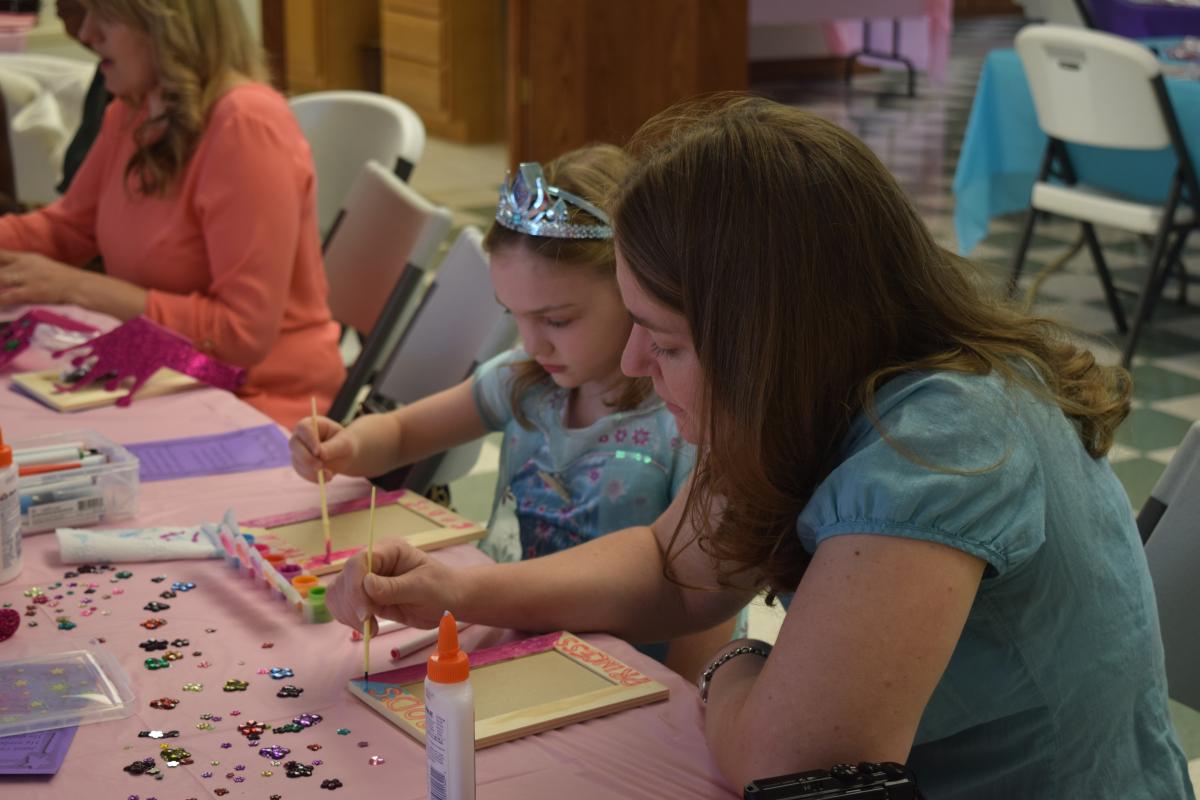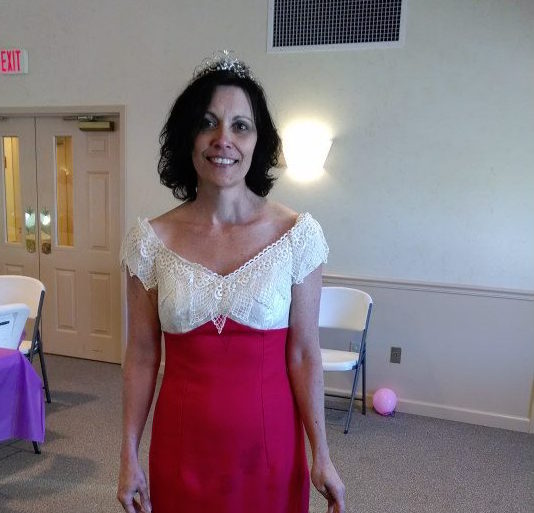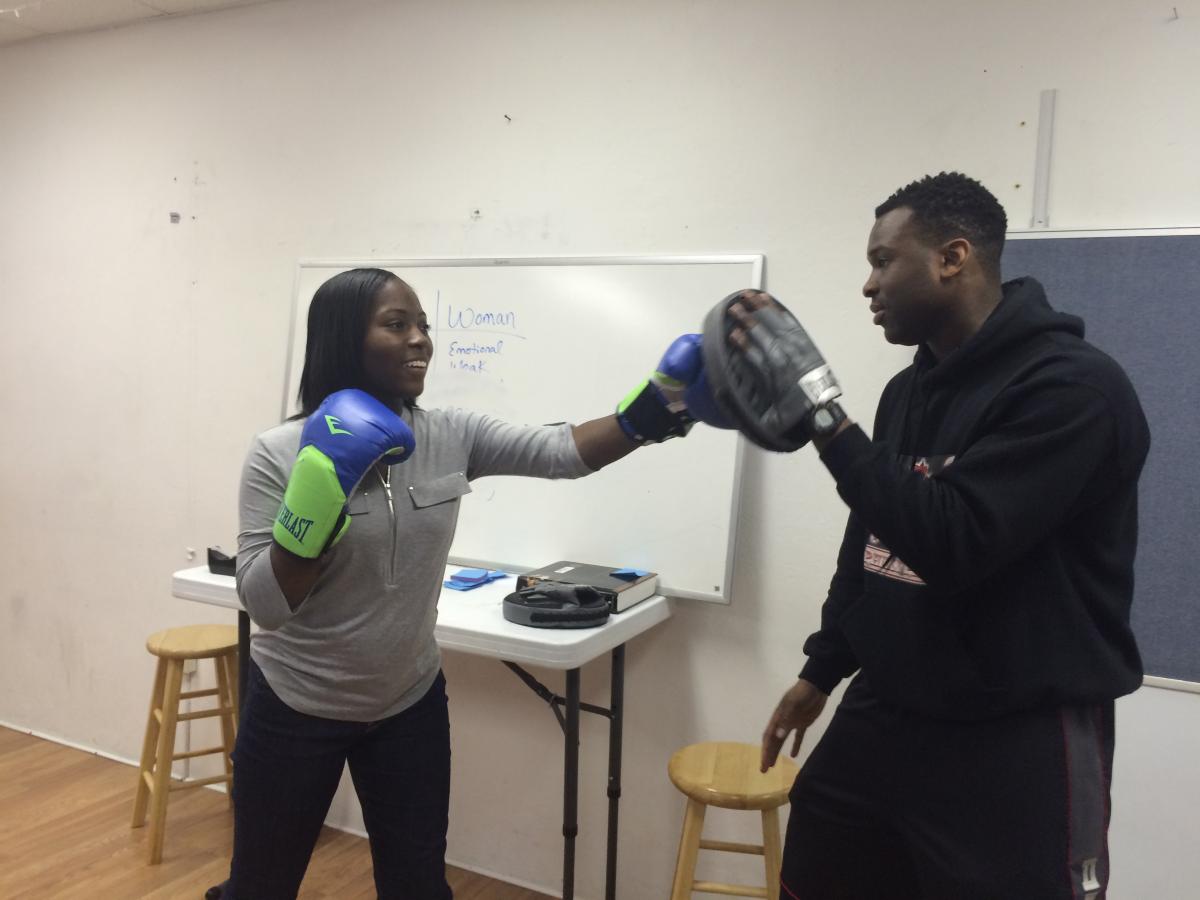By Tamaria L. Kulemeka
On any given day, girls are bombarded with images and messages portraying how they should look, walk, talk, act and think. Dove’s 2008 report titled Real Girls, Real Pressure: A National Report on the State of Self-Esteem, uncovers the self-esteem crisis among America’s girls. According to the report, this crisis “pervades every aspect of a girl’s life, including her looks, performance in school and relationships with family and friends.” One statistic highlights that 78 percent of girls with low self-esteem have a difficult time feeling good at school because they already think so poorly of themselves.
Several churches and conferences within the Columbia Union Conference are seeking innovative ways to interact with girls in and outside their walls, hoping to ward off the negative self-image and self-esteem issues and other problems plaguing girls in this present generation.
 God's Princesses
God's Princesses
Move over Cinderella, Snow White and the rest of the fanciful bunch! Anecdotes and questions about biblical princesses grace the pages of colorful devotional booklets designed for girls ages 12 and younger handed out at the Pennsylvania Conference’s Princess Tea events. Several teas are held annually in the conference as girls receive the royal treatment: eating dainty treats, making crafts with their mothers, grandmothers, and even fathers who choose to attend with their little girls, all while learning about great women in the Bible such as Esther and Ruth who are regarded as God’s princesses whether or not they wore a crown. The girls are taught that they, too, are princesses of the Most High God.
For Tamyra Horst (pictured below), Pennsylvania Conference Women’s Ministries director and founder of the Princess Tea, this mission of empowering little girls started with taking a hard look at the state of adult women and reaching back. These programs have helped hundreds of girls build confidence in the God who created them to thrive and flourish, she says.
 “I really believe what little girls and teens need most are godly women who walk beside them, care about them, show an interest, point them to God and help them grow in Him,” says Horst, a wife and mother of two sons, whose own insecurities led her on a personal journey with God that sparked this platform.
“I really believe what little girls and teens need most are godly women who walk beside them, care about them, show an interest, point them to God and help them grow in Him,” says Horst, a wife and mother of two sons, whose own insecurities led her on a personal journey with God that sparked this platform.
Horst started organizing teen conferences 15 years ago, tackling relevant teen topics that pointed them to God. Since that time, Horst has written numerous resources for teen ministries, including Real Love, Real Beauty, Real Friends and Real Me.
“As I began to work with the teen girls, I saw how the enemy attempts to take out a girl’s heart,” Horst says.
“I realized that we needed to go younger, lay a foundation in teaching them who they are in God, how He sees them—and just maybe that foundation would help as they grew into teens, then women.”
REACH Phenomenal Girls
When Audreyanna Loguerre first read Maya Angelou’s poem “Phenomenal Woman” in middle school, it became her mantra. When the 22-year-old University of Florida graduate embarked on ways to help teen girls living in Philadelphia, she knew only one name would suit the outreach program. The REACH Phenomenal Girls program served several girls in grades 8 to 10 living in and around the Pennsylvania Conference’s REACH Philadelphia church in Philadelphia.
“We wanted them to see their worth in the world and help them know they are enough,” Loguerre says. “Having a sense of self-worth translates into your academics, your career and your faith—all aspects of your life.”
 The girls met every Sunday for five weeks at the church. Influential women from the church and area churches presented enrichment classes on academic confidence, sexual health, body consciousness and so on; the girls even got some training in boxing and other self-defense skills so they can better protect themselves.
The girls met every Sunday for five weeks at the church. Influential women from the church and area churches presented enrichment classes on academic confidence, sexual health, body consciousness and so on; the girls even got some training in boxing and other self-defense skills so they can better protect themselves.
The program was part of the compassion project sponsored through the REACH Columbia Union Urban Evangelism School, where Loguerre and other students spent one year learning how to do outreach and evangelism.
Loguerre, who is now in Washington, D.C., working for a public relations agency, hopes others will continue what she and her REACH team started in Philadelphia—and that the successful program will ignite a passion in others to follow suit in their own communities.
Spreading Their WINGS
Vernee Stoddart began WINGS (Worth, Inspire, Nurture, Grooming and Success) Belleza about 10 years ago after witnessing the state of girls in her own congregation where her husband, Errol T. Stoddart, was pastoring. She said teen pregnancy rates were climbing at that time, and one pilot program was readily distributing birth control. After talking to several girls, Stoddart realized she needed to provide programming that would set them on the right track.
Stoddart started holding workshops and says. “We incorporated topics of social media, sex, dating, violence, and whatever God places in me to help these girls.”
Stoddart began working with 9- to 18-year-old girls in the church and from the community, and has continued to do this wherever she and her husband pastor. They are currently at the Allegheny East Conference’s Church of the Oranges in New Jersey.
 WINGS Belleza sponsors several girl-focused programs throughout the year, including an eight-week prep school helping girls build self-esteem and communication skills. Stoddart prides herself on equipping the girls in the program with information that will make them better informed and help them make better choices.
WINGS Belleza sponsors several girl-focused programs throughout the year, including an eight-week prep school helping girls build self-esteem and communication skills. Stoddart prides herself on equipping the girls in the program with information that will make them better informed and help them make better choices.
Another program Stoddart offers is titled Girls in Real Life Situations, or G.I.R.L.S., a 5-week program that deals with real life situations such as suicide, drugs, alcohol, and other times in which girls have to make choices. And My Body, My Treasure is an 8-week early intervention fitness and nutrition program patterned after NEWSTART.
 “I made mistakes as a young girl,” she says. “I was almost trafficked and raped being with the wrong crowds. That’s part of the motivation God has placed in my heart.”
“I made mistakes as a young girl,” she says. “I was almost trafficked and raped being with the wrong crowds. That’s part of the motivation God has placed in my heart.”
As the youngest of five and the only girl in her family, Stoddart was a tomboy much of her youth—at least until her mom sent her to charm school and enrolled her in ballet. “Who would have thought years later God would be using what He gave me then with these girls,” Stoddart says. “God has a wonderful sense of humor.”
The Church’s Niche
The church has a niche to fill that secular groups cannot, Loguerre says. “We have a powerful message of being a child of God and being loved, and it’s something we should be able to share practically.”
Unlike secular programs geared toward empowering girls, the church is trying to build God-confidence, not self-confidence, Horst says. “Instead of trying to help them feel good about themselves, which focuses on self, we attempt to help them focus on God. His love for them. That He created them with specific gifts and talents that are needed,” Horst adds. “Then on the days they feel bad about themselves, they can still have confidence because they know God is bigger.”
 Stoddart says that the programming the church provides is not always enough because there are so many evils to contend with in the world. She comes across girls who still struggle to make good choices. But running into those girls whose lives have dramatically improved has helped her stay the course.
Stoddart says that the programming the church provides is not always enough because there are so many evils to contend with in the world. She comes across girls who still struggle to make good choices. But running into those girls whose lives have dramatically improved has helped her stay the course.
“You have to plant that seed,” Stoddart says. “We have seen success—academics getting better, choosing positive friends, and looking to where they want to be when they get older.”
Horst adds, “I believe the media and our culture speak loudly and constantly to our girls, and the church remains mostly silent or critical. Sometimes we think we need to do big programs to impact lives. But all we really need to do is care and show it.”
Tamaria L. Kulemeka writes from Columbus, Ohio.
Feature photo: Autumn Stankay photographed Sarah and Megan Defrick in her studio in Greensburg, Pa.

